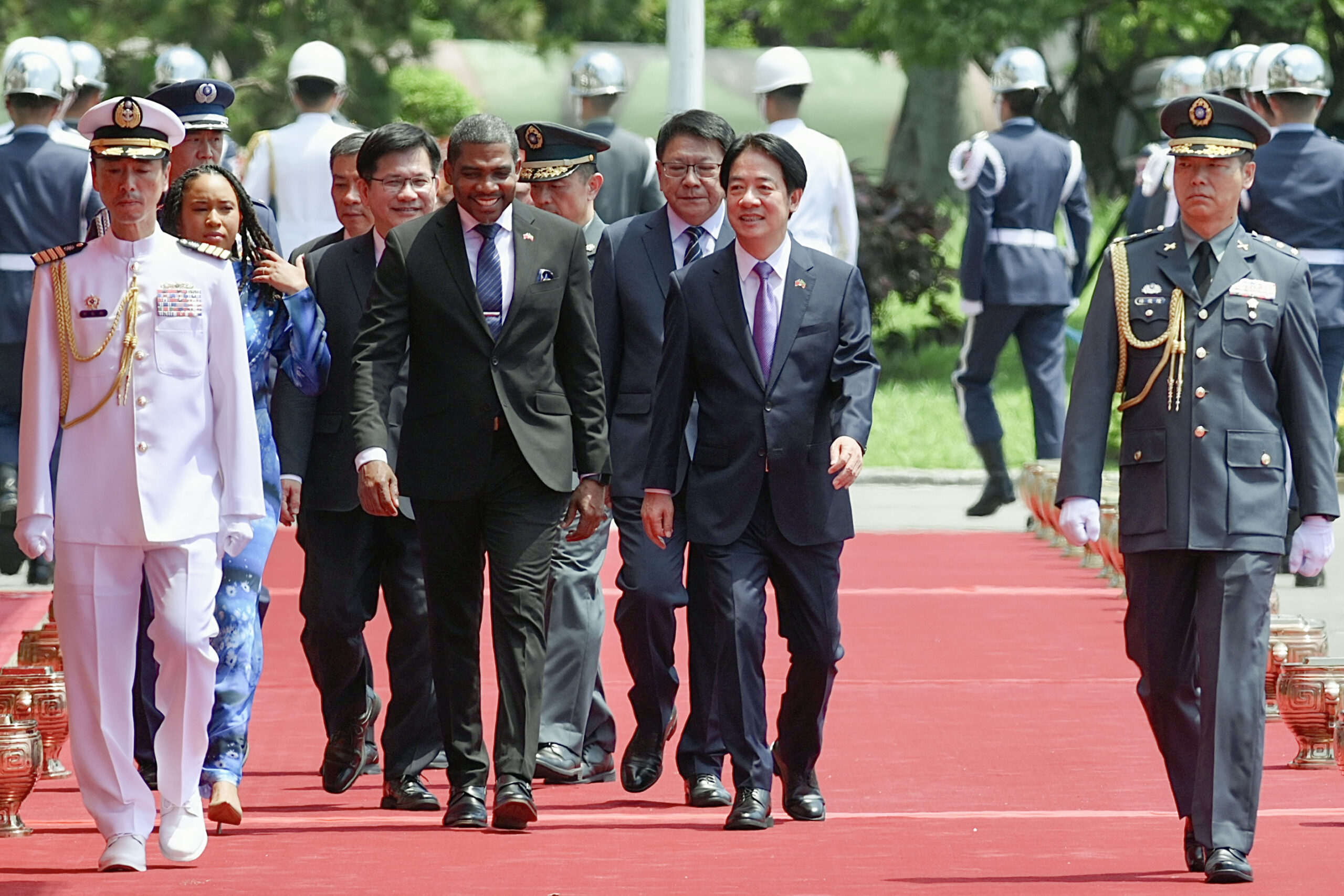Taiwan leader says China ‘has no right to punish’ island

Taiwan’s President Lai Ching-te (2nd R) escorts Prime Minister of Saint Kitts and Nevis Terrance Drew (C) during a ceremonial welcome at the Presidential Office in Taipei on June 24, 2024. Agence France-Presse
TAIPEI — Taiwan’s President Lai Ching-te said Monday that China “has no right to punish” Taiwanese people for their views or advocacy, after Beijing warned “diehard” supporters of the island’s independence could face the death penalty.
China claims democratic Taiwan as part of its territory and has refused to rule out using force to bring the island under its control.
Beijing has stepped up pressure on Taipei in recent years and held military drills around the self-ruled island days after Lai’s inauguration last month.
READ: Taiwan’s president says wants to work with China
On Friday, Beijing published new judicial guidelines that included the death penalty for “particularly serious” cases involving “diehard” supporters of Taiwanese independence, state media reported.
Article continues after this advertisementWhen asked to comment on the guidelines, Lai said: “I want to emphasise that democracy is not the source of crime. Autocracy is the crime.”
Article continues after this advertisement“China has no right to punish the people of Taiwan just because of what they advocate. China has no right to pursue cross-border prosecution of Taiwanese people.”
READ: Taiwan president: China’s ‘strong rise’ is greatest challenge
Lai warned that relations between the two sides would become “more and more alienated” if China does not “face up to the existence of the Republic of China (Taiwan’s official name), and conduct exchanges and dialogues with Taiwan’s democratically elected and legitimate government”.
“This is the correct way to enhance the well-being of people on both sides” of the Taiwan Strait, he said.
Lai’s Democratic Progressive Party has long asserted Taiwanese sovereignty, and Beijing has not conducted top-level communications with Taipei since 2016, when his predecessor Tsai Ing-wen came to power.
China has branded Lai a “dangerous separatist” and denounced his inaugural speech as a “confession of Taiwan independence”.
During that speech, Lai signaled an openness to resuming dialogue with Beijing, calling for both sides to develop exchanges.
China, however, has appeared to rebuff those overtures.
It continues to maintain a near-daily presence of naval vessels and warplanes around the island, and Taiwan’s military said Monday that 23 Chinese warplanes and seven naval vessels had been detected in the last 24 hours.